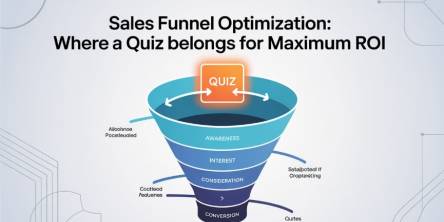Key Factors to Consider When Outsourcing Product Development

In the fast-paced world of technology and product development, staying ahead of the curve requires innovation and efficient resource management. According to Gartner, did you know the global software market is worth an estimated $4.5 trillion? This number demonstrates just how essential software is in the modern business context. While companies may want to create software products, it may not always be possible for them to build them. This is where outsourcing software product development comes in.
Today, outsourcing product development is a strategic imperative for many companies that offers many advantages such as cost savings, access to global talent, and accelerated time-to-market. However, navigating the outsourcing landscape successfully demands careful planning and consideration of various critical factors. And, whether you're a startup aiming to bring your vision to life or an established company, this blog helps optimize the product development processes. I'll delve into the essential considerations to outsource product development while ensuring that you harness the full potential of this powerful strategy to mitigate potential risks and challenges.
What Does it Mean to Outsource Product Development?
Outsourcing software product development means hiring an external vendor or team to create a software product. This means handling all or some of the various aspects of creating, designing, developing, and maintaining software products. But why would a company ever opt to outsource their product's development? Well, that would be because this approach allows companies to use the expertise and capabilities of external specialists while still retaining focus on their core business activities.
Essential Considerations for Outsourcing Product Development:
But wait; before you get cracking on outsourcing your product development, here are some key considerations you must remember.
- Engagement model: Different companies typically offer varying models when it comes to engagement with the client for outsourced software development. Some would likely offer an entire development team for hire, and others would provide an end-to-end engagement model. So, before hiring a company, take time to understand your needs and expectations from the project and understand the level of collaboration you want. And let us also ensure the partner has good communication practices in place.
- Ability to expand: Based on the product you plan to develop, the first step is to see that the company can allocate the developers and specialists necessary for your project. And since most products tend to grow, see to it that the resources can be scaled up or down as needed.
- Development approach: The development approach, i.e., how the outsourcing company will develop your product, is also a critical consideration. Ask if the outsourcing partner follows agile methodologies, which are well-suited for iterative and flexible development projects, or any other methods you believe will be required to create your product. Oh, and do not forget to evaluate the partner's approach to quality assurance, testing, and bug fixing since this will ensure you have a high-quality product at the end of the process.
- Technological capabilities: It is vital to ensure that the vendor or development company you choose must have the technical capabilities in alignment with your product. So, see that the team has expertise in the languages, technologies, and tools required for your product. Determining whether the partner you want to sign on has experience in your industry or domain would also be a good idea. This is also important because expertise in your specific industry can make it easier for them to understand your project's unique requirements better.
Suffice it to say that careful analysis of such factors, including the ones listed above, will help you make sure that the outsourcing team is in sync with your company's goals, has the capabilities to deliver a successful software product, and will be able to fulfill your project's requirements.
Similar Articles
The frequency of software releases has reached an all-time high lately. You see, more organizations are migrating to cloud native architectures.
In 2026, Microsoft Excel continues to power the U.S. business ecosystem, supporting over 80% of financial modeling, 70% of operational reporting, and nearly 65% of analyst-driven decision workflows across enterprises.
The rapidly growing volume and speed of digital transactions have had a whole lot of implications for businesses
We live in the age of cloud computing. That's plain to see. However, what may escape many are the operational and financial challenges of managing multiple independent clusters.
Times have changed and how! Take modern technology and the fast-paced digital economy, it is driving. Given the market conditions, any company's infrastructure has become more than just a technical detail.
It has been for everyone to see that the modern digital economy is distinguished by high volume, real-time financial transactions.
Business success has become reliant on efficiency and agility of the underlying technology infrastructure. Clearly, companies now depend on cloud computing to provide seamless services while managing exponential data growth.
Hospitals operate in environments where availability and patient safety are paramount at all times. As medical supply chains expand and regulatory oversight becomes more demanding, manual tracking methods introduce delays and risk.
Every sales funnel has one core goal: turn attention into revenue as efficiently as possible. Yet many funnels leak value at critical stages—visitors bounce, leads go cold, and sales teams chase prospects who were never a good fit.









